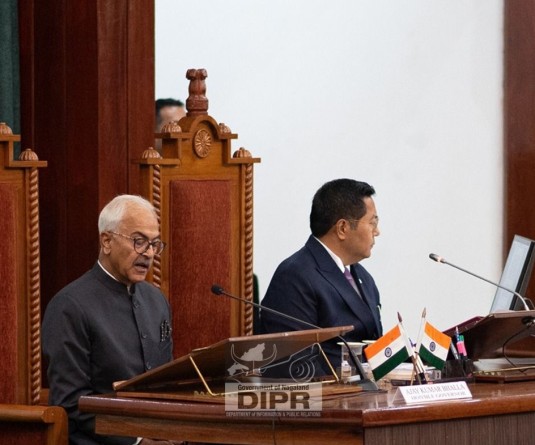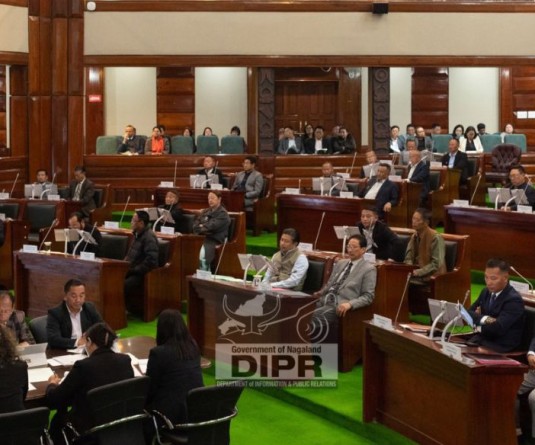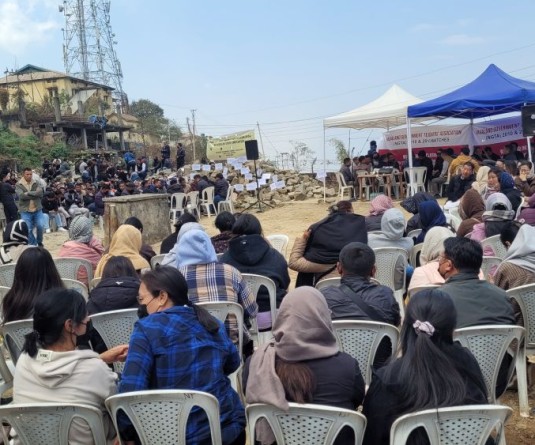People lining up to vote at polling station East Wing 53 AC Tuensang Sadar-I on February 27. (Morung Photo/For Representational Purposes Only)
.jpg)
Imkong Walling
Dimapur | March 2
Vote-counting in representative democracies are excitingly climactic affairs. The counting and the declaration of the results serve as an exhilarating climax to the high-octane electioneering, including but not limited to the vote-buying, horse-trading, underhand dealings, violence and the polling that played out before.
Reality soon strikes, however, after the dust settles. The same lot of people returns, with a few new faces, only to continue and repeat the cycle. What is it that makes people, who are well aware of the reality, so excited? This was a question posed to a few random people.
The ones who responded had this to say.
“I think it is generally because when something is in the news, we all become audiences of it quite easily,” commented Arien Jamir from Dimapur. He added that the phenomenon could also be “because many of us are linked either to the candidate or the clan or the village or tribe and so on.”
He did not bank much hope on the new set of government, development and governance-wise. If the past has been any indication, he said, “I don't expect any change, if I am honest. A good opposition would be heaven sent but that's probably not going to happen.”
His wish is to witness improvement or shifting of public attitude towards elections. According to him, it is a two-way street. The electorate, who put a price tag to their votes, should stop doing so, while the candidates should also not entertain people who come looking to earn pocket money during elections. “Both should serve as exemplar of change,” he maintained.
A state government employee, who wished to be anonymous, likened the public excitement that accompanies elections to the revelry that envelops sporting extravaganza. “Like watching a football game where you support a team just for the excitement of it,” she said.
On a serious note, she said that everyone seems to be conditioned into accepting that the “democratic exercise” of choosing a leader has become farce, a sham, while hardly doing anything about it. According to her, the perceived supine acceptance has engendered a tradition, where the election process has been downgraded to the question of “who's the lesser evil?”
“It is a dangerous state of mind when a society has come to accept it as a normal thing,” she said. The bleak observation notwithstanding, she added, “We all long for change like a distant dream.”
For Lipok Esther, who described herself as an entrepreneur, improvement in infrastructure and governance is what she hopes for. “We, as individuals, will not get anything out of it (election results) immediately. But I would like to see development, real development, which at the end benefits us as a whole. We need to see the state (Nagaland) working as a whole,” she said. According to her, the stepping stone to economic growth and progress is transport and communication. “Connectivity to places in our own state should not be like stepping out for an off-roading activity all the time.”
A robust platform for young entrepreneurs that can scale up production with export potential and sports promotion are two other sectors where she would want stronger government investment. She termed the entry of women into the Assembly, for the first time in Nagaland state’s history, as “a milestone not just for women but for the society as a whole.”






